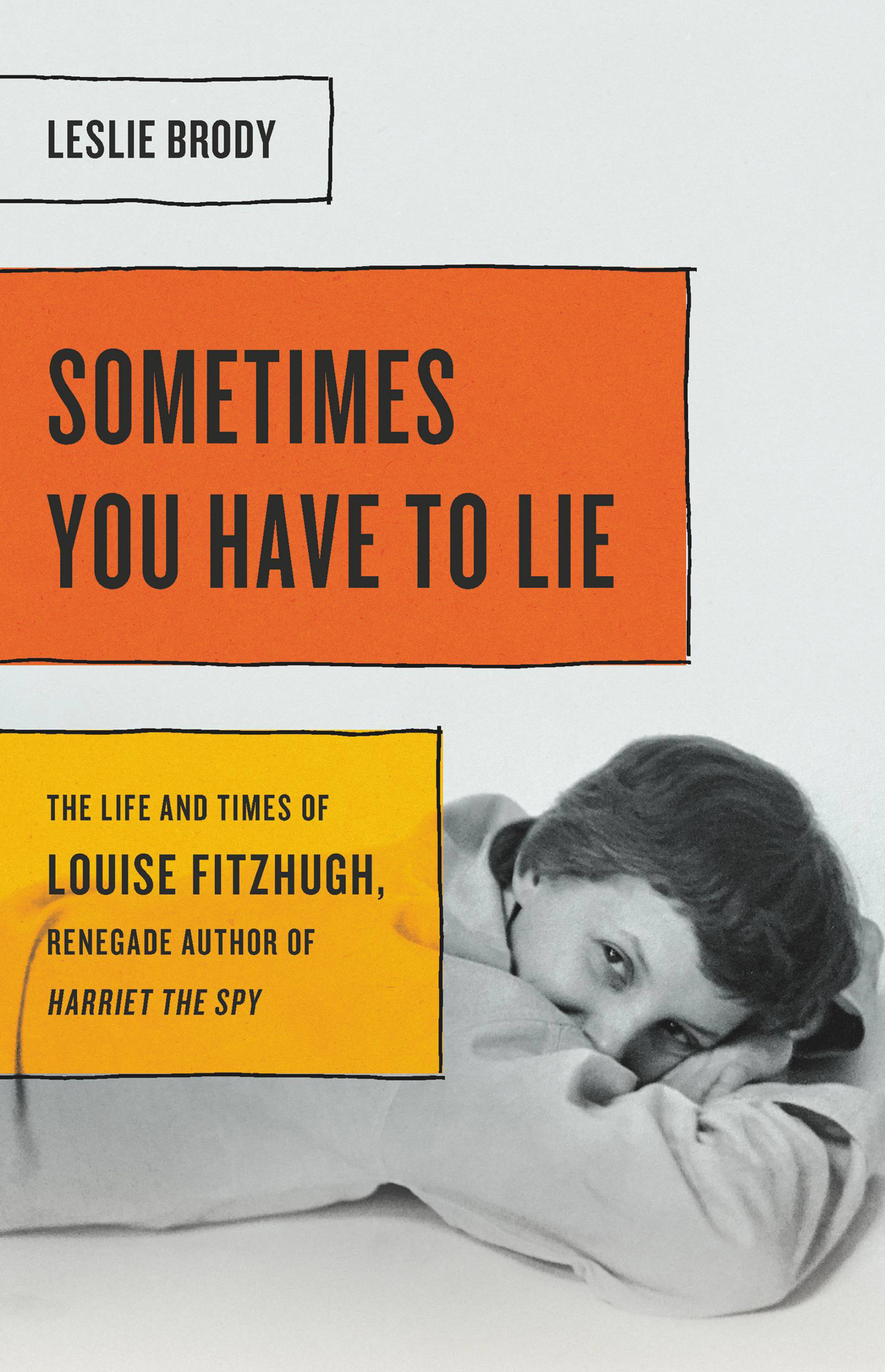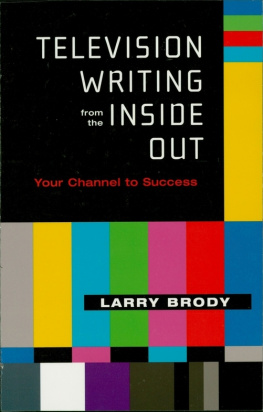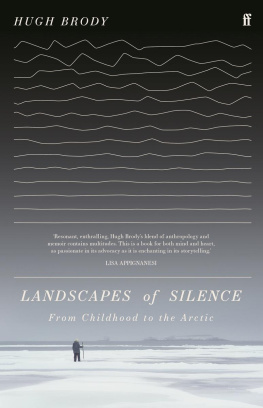Leslie Brody - Sometimes You Have to Lie
Here you can read online Leslie Brody - Sometimes You Have to Lie full text of the book (entire story) in english for free. Download pdf and epub, get meaning, cover and reviews about this ebook. year: 2020, publisher: Basic Books, genre: Non-fiction. Description of the work, (preface) as well as reviews are available. Best literature library LitArk.com created for fans of good reading and offers a wide selection of genres:
Romance novel
Science fiction
Adventure
Detective
Science
History
Home and family
Prose
Art
Politics
Computer
Non-fiction
Religion
Business
Children
Humor
Choose a favorite category and find really read worthwhile books. Enjoy immersion in the world of imagination, feel the emotions of the characters or learn something new for yourself, make an fascinating discovery.

- Book:Sometimes You Have to Lie
- Author:
- Publisher:Basic Books
- Genre:
- Year:2020
- Rating:5 / 5
- Favourites:Add to favourites
- Your mark:
- 100
- 1
- 2
- 3
- 4
- 5
Sometimes You Have to Lie: summary, description and annotation
We offer to read an annotation, description, summary or preface (depends on what the author of the book "Sometimes You Have to Lie" wrote himself). If you haven't found the necessary information about the book — write in the comments, we will try to find it.
Sometimes You Have to Lie — read online for free the complete book (whole text) full work
Below is the text of the book, divided by pages. System saving the place of the last page read, allows you to conveniently read the book "Sometimes You Have to Lie" online for free, without having to search again every time where you left off. Put a bookmark, and you can go to the page where you finished reading at any time.
Font size:
Interval:
Bookmark:

Copyright 2020 by Leslie Brody
Cover design by Chin-Yee Lai
Cover image used with permission from Julie Ann Johnson: Lilyan Chauvin, photographer, from the collection of France Burke, by permission of Sam Shea
Cover copyright 2020 Hachette Book Group, Inc.
Hachette Book Group supports the right to free expression and the value of copyright. The purpose of copyright is to encourage writers and artists to produce the creative works that enrich our culture.
The scanning, uploading, and distribution of this book without permission is a theft of the authors intellectual property. If you would like permission to use material from the book (other than for review purposes), please contact permissions@hbgusa.com. Thank you for your support of the authors rights.
Seal Press
Hachette Book Group
1290 Avenue of the Americas, New York, NY 10104
www.sealpress.com
@sealpress
First Edition: December 2020
Published by Seal Press, an imprint of Perseus Books, LLC, a subsidiary of Hachette Book Group, Inc. The Seal Press name and logo is a trademark of the Hachette Book Group.
The Hachette Speakers Bureau provides a wide range of authors for speaking events. To find out more, go to www.hachettespeakersbureau.com or call (866) 376-6591.
The publisher is not responsible for websites (or their content) that are not owned by the publisher.
Library of Congress Cataloging-in-Publication Data
Names: Brody, Leslie, 1952author.
Title: Sometimes you have to lie : the life and times of Louise Fitzhugh, renegade author of Harriet the spy / Leslie Brody.
Description: First edition. | New York : Seal Press, 2020. | Includes bibliographical references and index.
Identifiers: LCCN 2020022922 | ISBN 9781580057691 (hardcover) | ISBN9781580057707 (ebook)
Subjects: LCSH: Fitzhugh, Louise. | Authors, American20th centuryBiography. | IllustratorsUnited StatesBiography.
Classification: LCC PS3556.I8554 Z54 2020 | DDC 813/.54 [B]dc23
LC record available at https://lccn.loc.gov/2020022922
ISBNs: 978-1-58005-769-1 (hardcover), 978-1-58005-770-7 (ebook)
E3-20201023-JV-NF-ORI
For Gary
Ive never been more intensely curious about a writers life, nor more thwarted in finding anything out about that life, than I have been in the case of Louise Fitzhugh. At some point I deduced that the very lack of information likely answered my most burning questionwas she a lesbian? But that was little preparation for the true story. What a lesbian! And what a life! Leslie Brody serves up an almost unbearably gratifying tale in her much-anticipated biography, Sometimes You Have to Lie. Southern Gothic childhood. Escape to Greenwich Village and Europe. Famous friends. String of lovers. Cross-dressing. Publishing gossip. Even a lost manuscript. I was especially pleased to learn so much about the painting career of this groundbreaking writer who considered herself just as much a visual artist. I only wish Brodys book, and Fitzhughs life, had been much, much longer.
Alison Bechdel, author of Fun Home
It has taken a really good spy, in Leslie Brody, to come up with the story weve been waiting to get our hands on for all our reading lifetimes. Sometimes You Have to Lie does the greatest honor to Louise Fitzhugh and her brilliant avatar, Harriet the Spy: It tells the truth.
Gregory Maguire, author of Wicked and Egg & Spoon
With clear-eyed compassion, Leslie Brody pulls back the curtain to reveal the complex, delicate, fierce woman whose imagination created our beloved Harriet the Spy and so much more. I was fascinated and moved by Louise Fitzhughs struggles to be and do and have all she desired, and I feel richer for the experience of getting to know her.
Therese Anne Fowler, author of Z: A Novel of Zelda Fitzgerald
What a role model Harriet the Spy was for a kid: whip-smart, curious, and bold. It turns out her creator, Louise Fitzhugh, was just as daring. Sometimes You Have to Lie is a rollicking and insightful biography about a modern literary heroine.
Anne Zimmerman, author of An Extravagant Hunger: The Passionate Years of M. F. K. Fisher
When I grow up Im going to find out everything about everybody and put it all in a book.
Harriet the Spy
H arriet the Spy isin the coolest sixties slangan experience. From its publication in 1964, readers recognized author Louise Fitzhughs heroine, eleven-year-old Harriet M. Welsch, as an entirely new and radically different version of the American girl: unnerving, unsentimental, nosy, sometimes anxious, extremely funny, rather shrewd, and brutally frank. Some childrens books critics simply couldnt get over how nasty they thought she was, and what a horrid example she set. Children, unsurprisingly, loved the many ways in which Harriet defied authority. When Harriet says, Ill be damned if Ill go to dancing school, she sends up a howl as staggeringin its wayas Allen Ginsbergs poem by that name. Harriet is raucous, unruly, and unwilling to compromise with phonies and finks. Shes a pint-size harbinger whose schoolroom battles for respect and understanding look in microcosm like the battles for equality many women and girls would wage over the coming years.
Louise Fitzhugh began writing Harriet the Spy in 1963, the same year Betty Friedan in The Feminine Mystique denounced postwar male chauvinism in America, identifying and rethinking social relations in family and society. Into this heady world Harriet sprang, ready to fight for her independence.
As a child of the fifties, Harriet was a Baby Boomer original. She was a girl spy and practicing writer who dressed in boys clothes. Her friend and fellow sixth-grader Janie Gibbs was an amateur scientist whose experiments were on track to blow up the world. And while some adults consider Harriets stalking, peeping, eavesdropping, and occasional breaking and entering a nasty business, betrayal is never Harriets intention. She doesnt spy to extort or to blackmail or to abuse the secrets she collects; she is an apprentice writer gathering material. It is all in service of her craft.
In those bad old days when many women still couldnt get a credit card without a male cosigner, and advertisements entreated wives to make husband-pleasing coffee, Harriet the Spy gave children countercultural ideas. She did things that kids werent supposed to doand things they may not have considered before reading about them: Harriet quaffed egg creams; she rode three to a motorcycle; she saw a therapist. She wore a tool belt with a flashlight and a knife and ate cake every day after school. She eavesdropped (through a skylight, or in a dumbwaiter) and kept notes on strangers and friends. Harriet the Spy inspired the many enterprising children who formed spy clubs and took their notebooks on expeditions around their neighborhoods. Kids saw themselves in her flawed, fearless image.
The books distracted, comic adults were also new to modern childrens literature. Harriets mother and father are busy, worldly New Yorkers, affectionate but unreliable. Fortunately, they leave care of their daughter to a learned nanny named Ole Golly, magical in her erudition. When Harriets independence is pressured by the demands of conformity, Ole Golly helps her find the means to resist, and even to subvert situations to her advantage. For instance, Harriet understands that learning to foxtrot and waltz is a rite of passage in her upper-crust society, and she dreads dancing school as a place where preteen girls are sent to learn all the correct steps and to follow a boys lead. Ole Golly helps Harriet reimagine the ballroom floor as a field of operation where agents like Mata Hari, a great dancer
Font size:
Interval:
Bookmark:
Similar books «Sometimes You Have to Lie»
Look at similar books to Sometimes You Have to Lie. We have selected literature similar in name and meaning in the hope of providing readers with more options to find new, interesting, not yet read works.
Discussion, reviews of the book Sometimes You Have to Lie and just readers' own opinions. Leave your comments, write what you think about the work, its meaning or the main characters. Specify what exactly you liked and what you didn't like, and why you think so.



